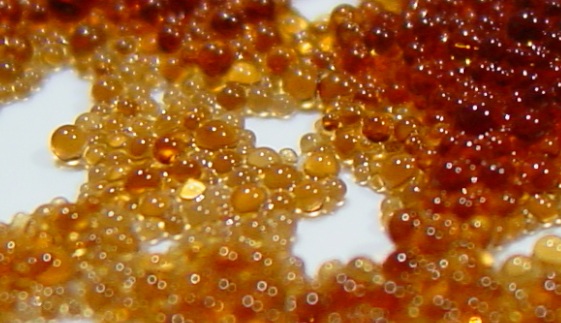 When we think about the damage that occurs with doors, rarely do we think about the water softening systems many businesses use to cut down on the amount of hardness in the water.
When we think about the damage that occurs with doors, rarely do we think about the water softening systems many businesses use to cut down on the amount of hardness in the water.
Hard water can cause a myriad of problems that range from water spots on glassware to tainting the flavor of drinking water. However, water softening systems can provide a solution to these issues. The only problem is the chemicals used to treat the water can also cause major damage if you don’t have chemical resistant doors in the area where your water softening system is stored.
Before we start with anything else, let’s identify some of the problems water softening systems can cause.
Water Softening Systems and Chemical Resistant Doors
Salt Issues
Salt is used within the water softening system to create a brine in a separate tank. The hard water flows into the tank and the calcium and magnesium ions are pulled out of the water and replaced with sodium ions. This helps with flavor, calcium buildup on appliances, and spots on glassware.
Depending on the location of the facility, humidity can also wreak havoc on the quality of your doors if combined with the salt used in water softening systems. Tropical locations are especially prone to this problem. If chemical resistant doors aren’t installed, the salt and humidity eat away at metal doors and frames and this leads to unsightly doors and hardware.
The salt is also stored in bags. Often times, the bags aren’t stored in secure areas which can lead to the salt getting spilled and splashed on to the facility door. This, of course, results in damage to your doors.
The Solutions
Water softening systems don’t have to be a death sentence for your doors, though. All it takes is a bit of research beforehand to make a decision that is going to save you time and money in the grand scheme of things.
Galvanized Steel
Galvanized steel is a viable option if you’re interested in a less expensive option for a door that still fights the corrosive nature of the salt from water softening systems. Galvanized steel are chemical resistant doors and composed mainly of zinc with a thin layer of aluminum on top.
This type of material will still corrode over time, but is a much better option as opposed to a wooden door or steel doors and frames.
Aluminum
Aluminum doors are another possible option to combat the corrosion that comes from the salt used in water softening systems. Aluminium doors are more rust-resistant than galvanized steel, which can keep them in better shape for longer when dealing with chemical damage. However, it’s important to note they aren’t as strong as galvanized steel which makes them more susceptible to nicks and dings.
Stainless Steel or Fiberglass
Both stainless steel and fiberglass are the best options when it comes to avoiding the chemical damage that can be caused by water softening systems. It all depends on whether or not you want to spend the extra money on these doors. If you have a high amount of salt being used in the system, it wouldn’t be a bad idea to invest in these doors simply to save yourself money in the long run. The cost of repairs and replacement doors if you use something less sturdy will add up over time.
Are you having trouble with a water softening system damaging your doors? Give us a shout. We can talk you through some options to figure out what would work best for you.
